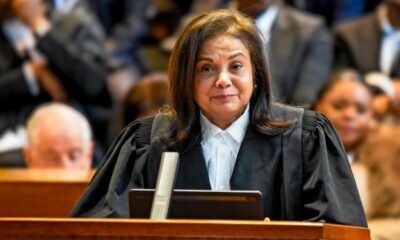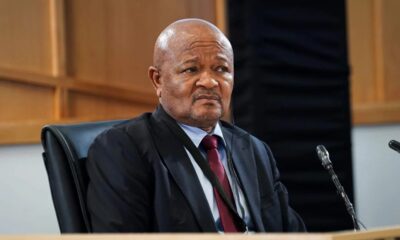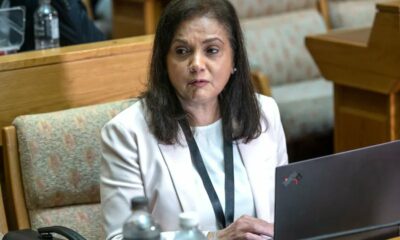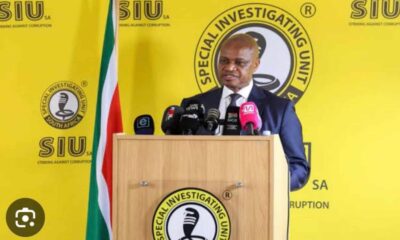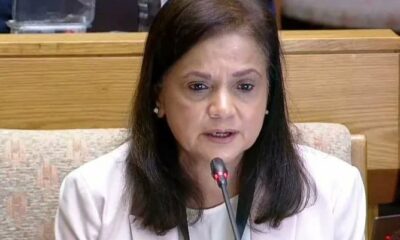News
Batohi’s Testimony Deepens Questions Over Chauke’s Conduct at the Nkabinde Inquiry
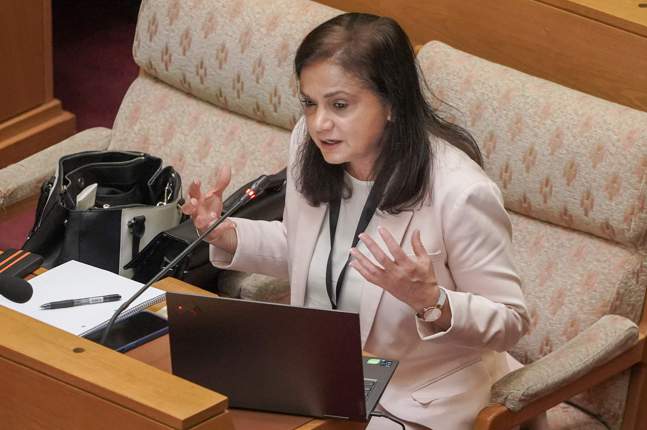
Why Batohi’s Testimony Has Put Chauke Under Fresh Scrutiny
The Nkabinde Inquiry has stepped into an intense week of testimony, and on Tuesday, the spotlight remained firmly on National Director of Public Prosecutions Advocate Shamila Batohi. Her appearance has already added new weight to long-standing questions about whether Deputy Director of Public Prosecutions Advocate Andrew Chauke is fit to continue holding office.
What unfolded during her evidence has drawn sharp attention from legal experts and the public alike, particularly as it taps into deeper anxieties South Africans have about the independence and credibility of the prosecuting authority.
A Pressure Point That Sparked Concern
Batohi told the inquiry that former Acting KwaZulu-Natal DPP Advocate Cyril Mlotshwa was placed under improper pressure in the Booysen matter. According to her testimony, Chauke had pushed for an indictment to be signed even though the supporting evidence had never been provided to Mlotshwa.
In the world of prosecutions, an indictment is only as strong as the factual record behind it. Batohi stressed that this documentation is essential and must be fully available to the person authorised to sign. Yet Mlotshwa repeatedly asked for these records and did not receive them.
Instead, the prosecution team bypassed him entirely and reported directly to Chauke. That move raised serious questions about procedural integrity.
South Africans following the inquiry online expressed frustration, noting how these recurring issues reflect broader worries about accountability within the justice system.
A Warning That Was Ignored
The inquiry heard that on 12 June 2012, an indictment was emailed to Mlotshwa, who refused to sign it. He warned that approving it without seeing the evidence would be unlawful.
His stance highlighted an internal clash over due process. Despite his objection, the pressure continued. Batohi also pointed to Chauke’s suggestion that he could escalate the matter to the Acting NDPP and the Minister.
This is where the cultural and political context becomes clear for South African readers. The Minister has no operational role in prosecutions, which made that suggestion not only unusual but also deeply concerning.
Many legal commentators reacted strongly to this revelation, saying it reflects a blurring of lines that should never happen in a constitutional democracy.
What Happened After Mlotshwa Was Removed
Mlotshwa was removed as Acting DPP less than a month later, on 9 July 2012. Advocate Moipone Noko was appointed in his place.
The next day, an application for racketeering authorisation bearing Chauke’s name was submitted to the NPA’s VGM offices. However, the documents were not signed, and the 2012 racketeering file could not be found.
Advocate Anthony Mosing confirmed that he had received an unsigned racketeering application from the South Gauteng office at around the same time. The inquiry is now probing how the authorisation was eventually processed and who took responsibility for it. Batohi told the panel that she was not aware whether Mlotshwa ever received the prosecution memorandum linked to the matter.
These missing pieces are now central to the inquiry’s work, with Evidence Leader Advocate David Mahlomanyane guiding testimony to establish whether there was interference in prosecutorial decision-making.
Why This Inquiry Matters Now
South Africans have become increasingly alert to questions of integrity in state institutions. The NPA in particular has spent years rebuilding public trust after high-profile controversies.
This inquiry is therefore more than an internal review. It is a test of whether the prosecuting authority can show transparency at a time when the public expects stronger safeguards against political and administrative overreach.
Batohi’s testimony has added powerful context and new clarity. The inquiry’s next steps will be watched closely, especially as more witnesses are expected to fill in the gaps around the racketeering documents and the process that followed Mlotshwa’s removal.
South Africans want a justice system that works without fear, favour, or interference. The Nkabinde Inquiry is now an important part of that national conversation.
Also read: SIU Moves In: SA Tourism Faces Major Probe Over Irregular Contracts
Follow Joburg ETC on Facebook, Twitter, TikT
For more News in Johannesburg, visit joburgetc.com
Source: IOL
Featured Image: News24

